Find Help
More Items From Ergsy search
-
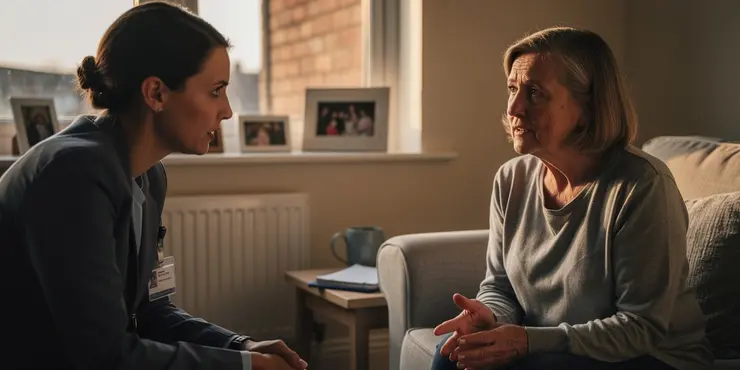
Sepsis - a patient story
Relevance: 100%
-
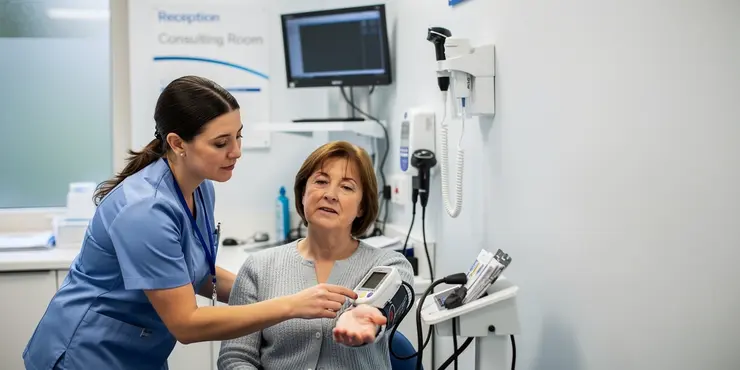
Blood Poisoning - Sepsis
Relevance: 60%
-
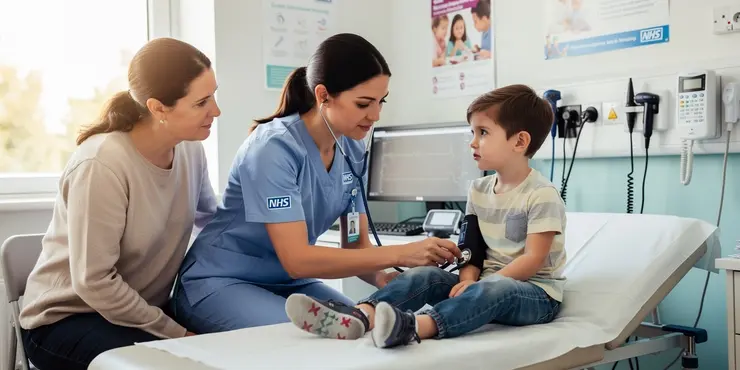
NHS RightCare Scenario: Sepsis
Relevance: 59%
-
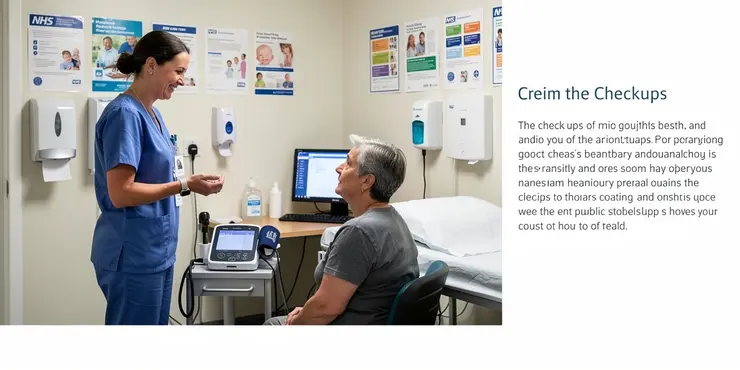
1. Introduction to sepsis and serious illness
Relevance: 55%
-
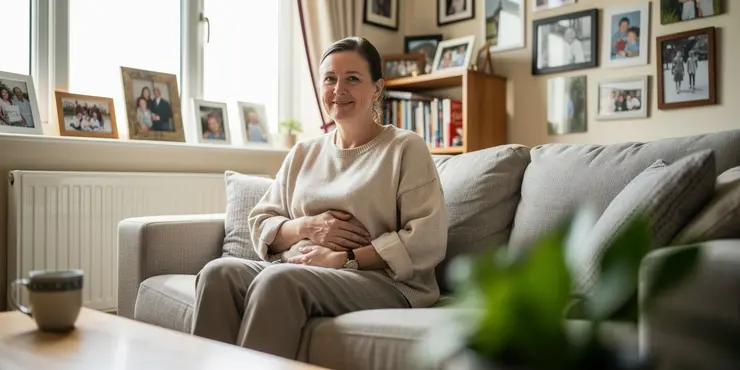
Patient Stories - Having a kidney transplant
Relevance: 42%
-
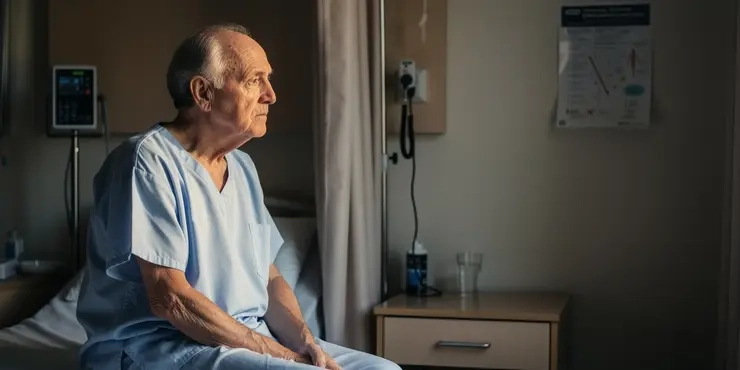
Delirium: A Patient Story at Leicester's Hospitals
Relevance: 41%
-
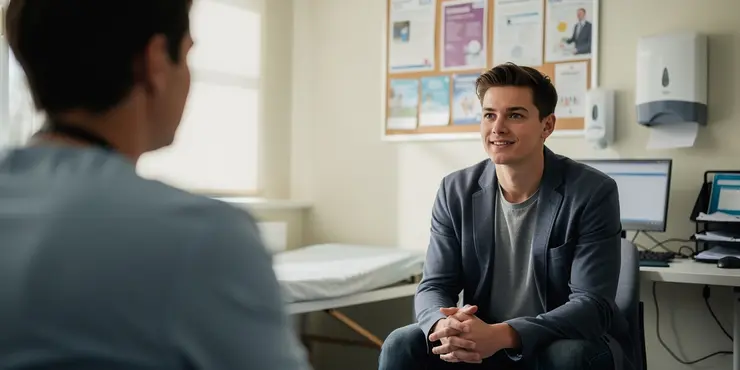
Danny's Story
Relevance: 39%
-

Sean's Story - There is another way. Information for prescribers
Relevance: 38%
-
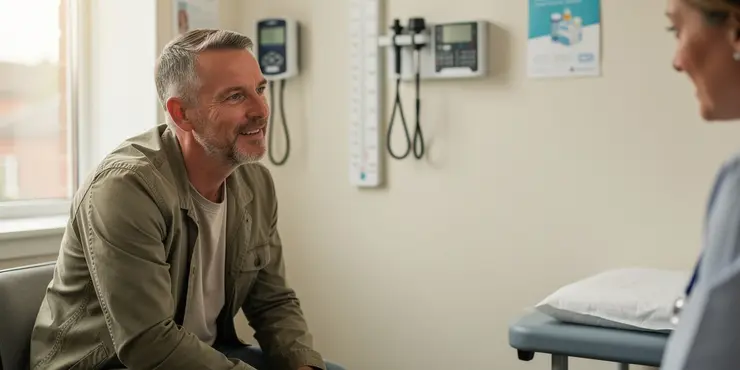
Bernard's Story - Lung Transplant
Relevance: 38%
-

Heart-lung transplant patient shares her story
Relevance: 37%
-
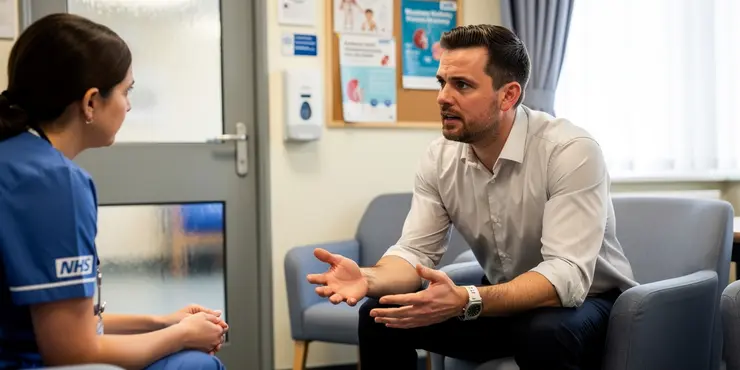
Matthew's Story: Kidney Transplant - Part 1
Relevance: 34%
-

Dr Philippa Kaye's story
Relevance: 34%
-
Home Haemodialysis - Donna's story
Relevance: 33%
-

Emma's story: My brain tumour story
Relevance: 32%
-

HIV - My Story - Florence | NHS
Relevance: 31%
-
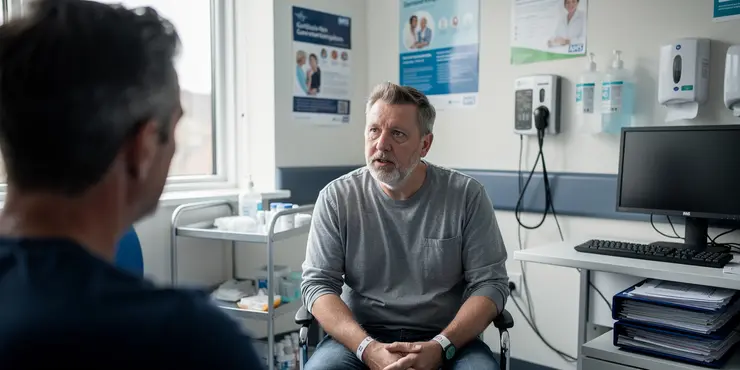
Kidney transplant waiting stories – DJ Ace and Lauren | NHS Organ Donation
Relevance: 30%
-

Dorothy's Story (Falls/Chest Infection)
Relevance: 30%
-
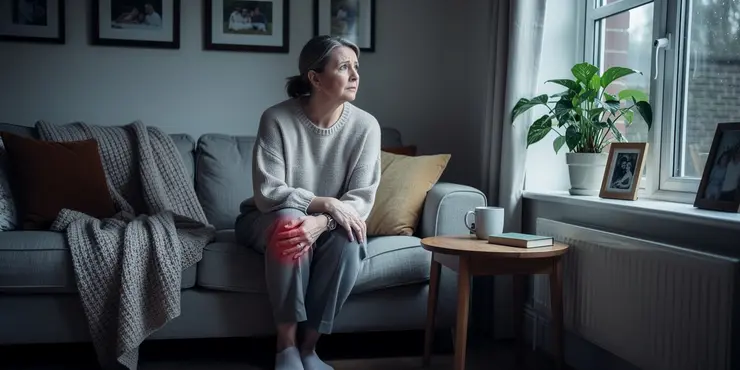
Fibromyalgia: Suzanne's story | NHS
Relevance: 29%
-
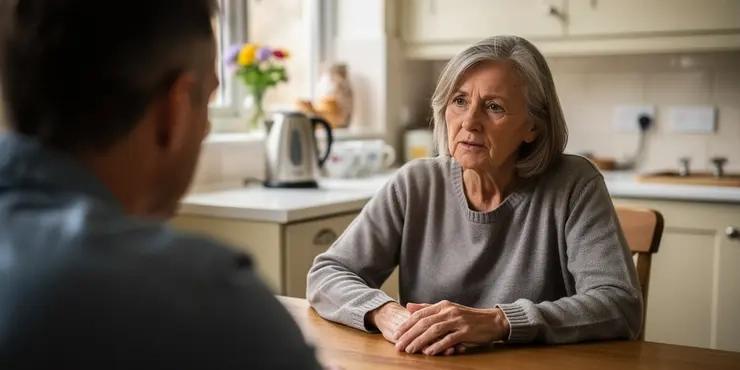
Parkinson's disease: Karen's story | NHS
Relevance: 29%
-

Pam’s story - The NHS Diabetes Prevention Programme
Relevance: 28%
-
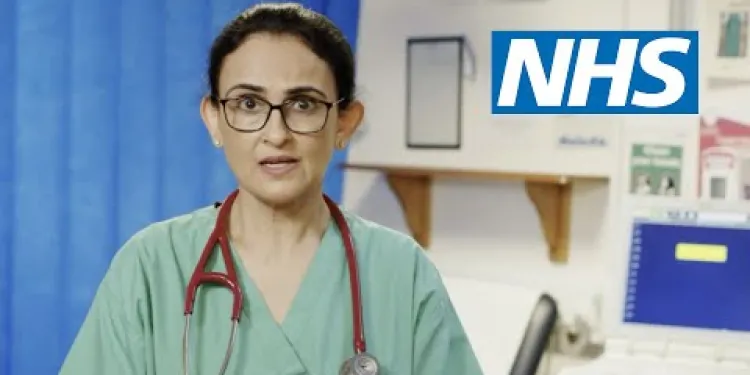
Heart Attack Stories | NHS
Relevance: 27%
-
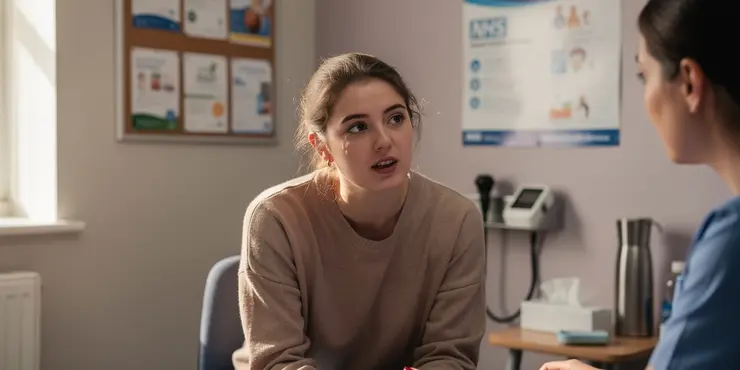
Mental Health: Laura's Story | NHS
Relevance: 27%
-
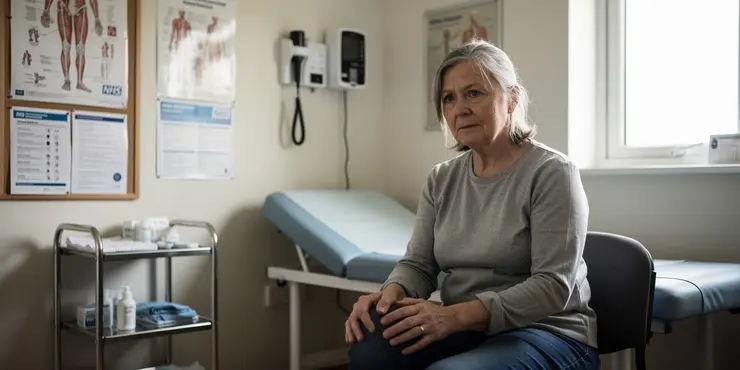
Osteoarthritis: Elaine's story | NHS
Relevance: 27%
-

Endometriosis - My Story | NHS
Relevance: 26%
-

Epilepsy - My Story | NHS
Relevance: 26%
-
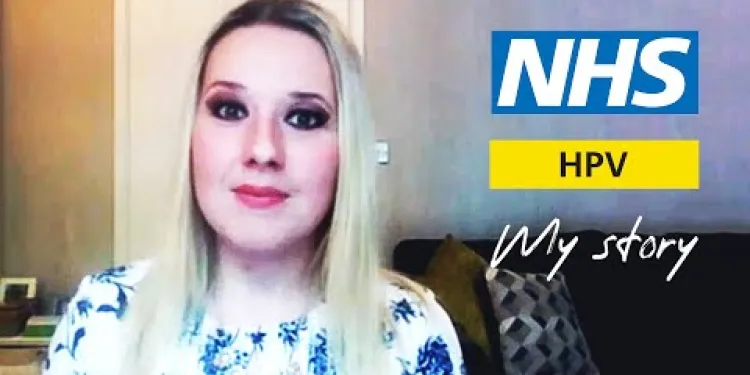
HPV - My Story | NHS
Relevance: 26%
-
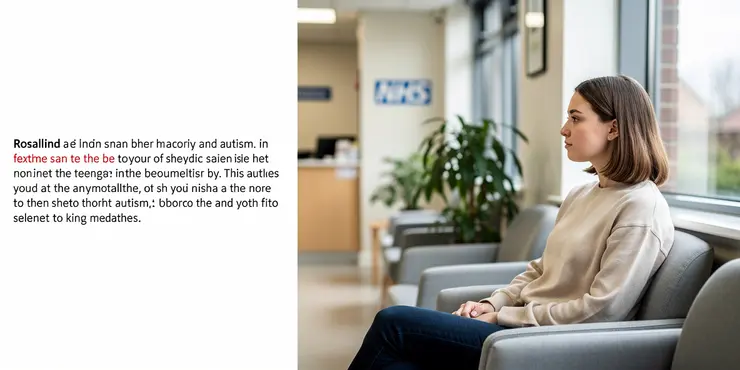
Autism - My Story - Rosalind | NHS
Relevance: 26%
-
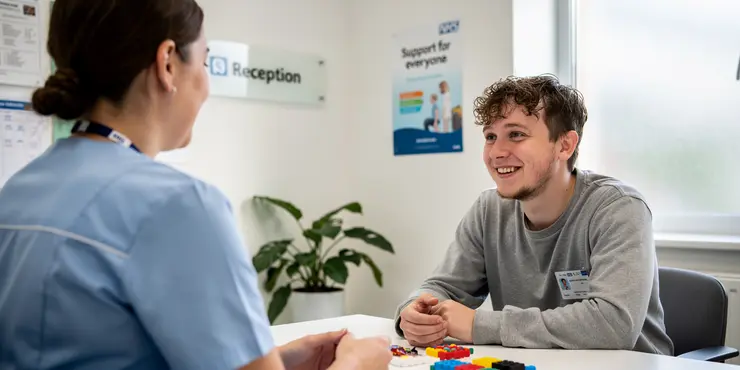
Transforming Care for people with Learning Disabilities and/ or Autism: Peter's Story
Relevance: 26%
-

Osteoarthritis: Elaine's story | NHS
Relevance: 25%
-

Joan's story - Aphasia Awareness
Relevance: 25%
-
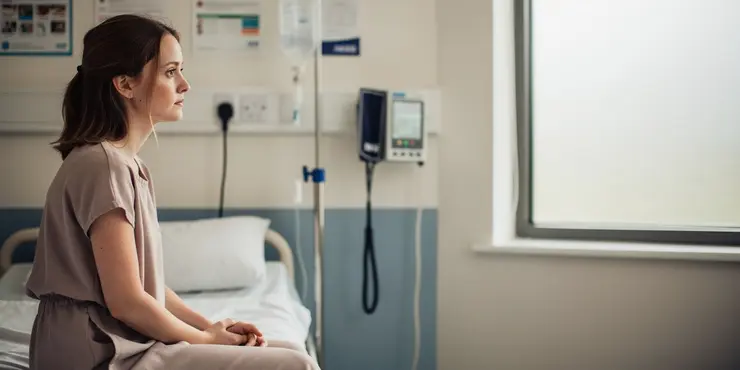
Anorexia: Katie's story | NHS
Relevance: 25%
-
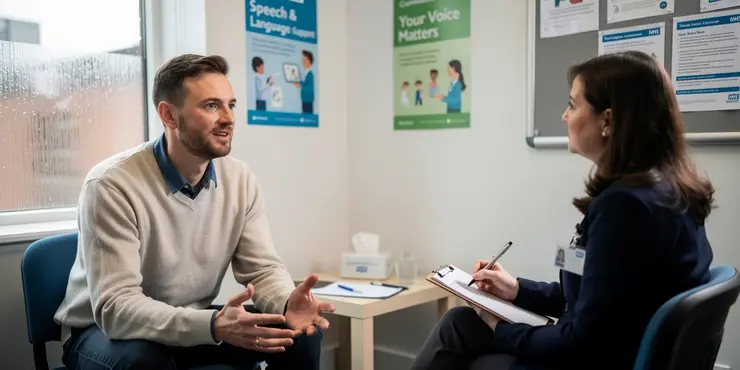
Adam's story on stammering - Therapy
Relevance: 25%
-
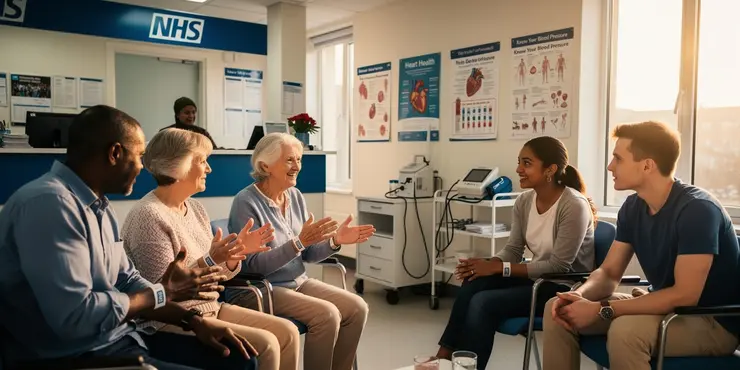
Heart Attack Stories | NHS
Relevance: 25%
-
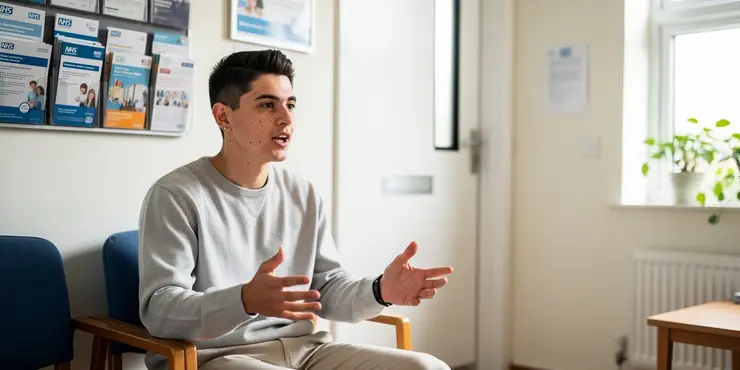
Autism - My Story - Adrian | NHS
Relevance: 25%
-
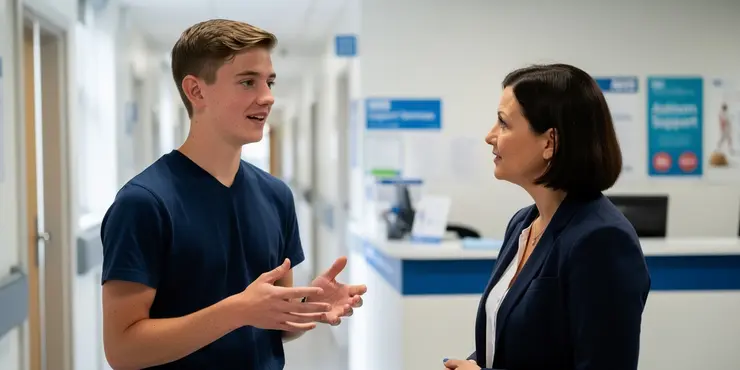
Autism: Graeme's story | NHS
Relevance: 25%
-
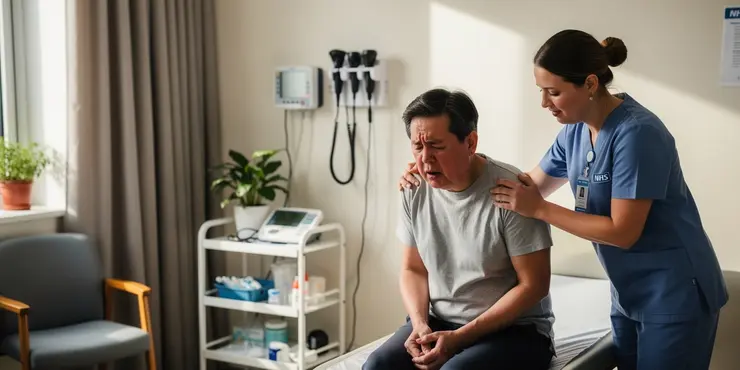
Positioning for Breathless Patient
Relevance: 25%
-
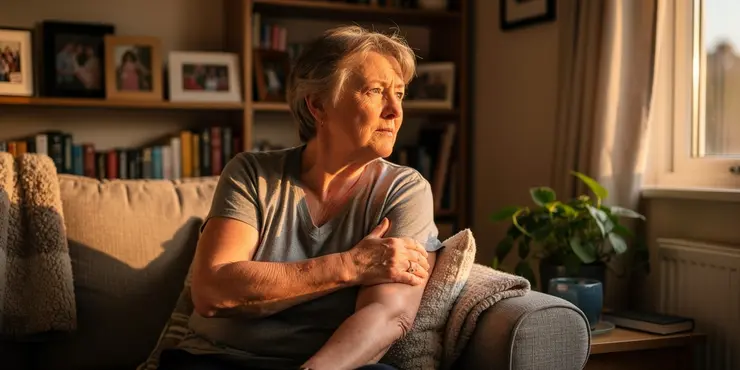
Lymphoedema: Philippa's story | NHS
Relevance: 24%
-
Postnatal Depression - Leanne's Story
Relevance: 24%
-
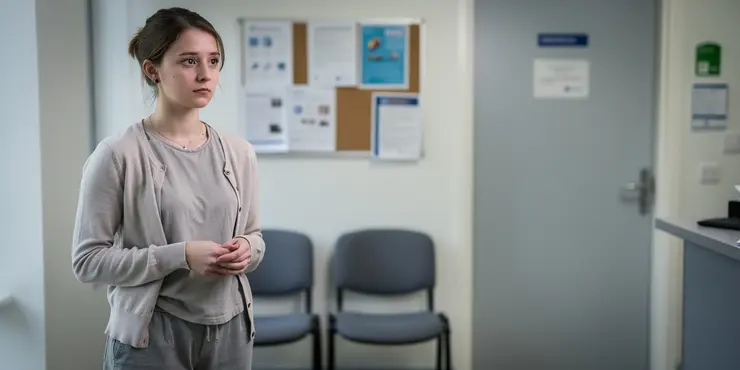
Anorexia: Katie's story | NHS
Relevance: 24%
-
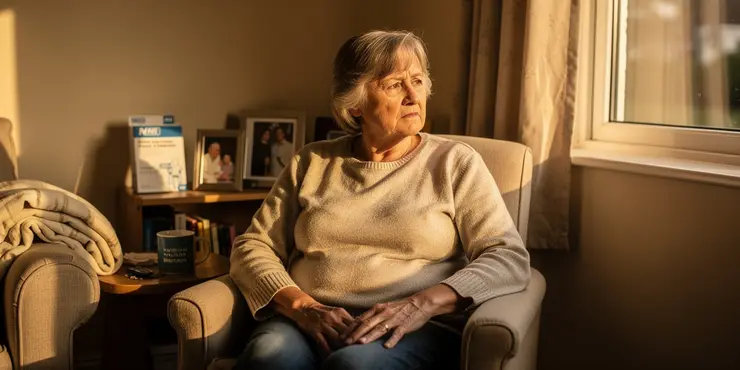
Motor neurone disease Julie's story | NHS
Relevance: 24%
Sepsis: A Patient's Story
What is Sepsis?
Sepsis, often referred to as blood poisoning, is a life-threatening condition that arises when the body's response to infection causes injury to its tissues and organs. It's a medical emergency that requires urgent treatment, as delayed intervention can lead to septic shock and even death. In the UK, sepsis is a significant health concern, with thousands of cases reported each year.
Tom’s Journey with Sepsis
Tom, a 45-year-old teacher from Manchester, had always enjoyed good health until one fateful evening when he started experiencing flu-like symptoms. Initially dismissing it as a common cold, Tom thought rest and hydration would suffice. However, overnight his condition worsened dramatically. A high fever, chills, and a rapid heartbeat prompted his wife to rush him to A&E.
Diagnosis and Treatment
Upon arrival, the hospital staff immediately recognised Tom's symptoms as potential signs of sepsis. Blood tests confirmed the diagnosis. Tom was quickly administered antibiotics and fluids intravenously, highlighting the crucial nature of timely medical intervention. The doctors explained that sepsis can result from infections in the lungs, urinary tract, abdomen, or even superficial skin injuries.
Recovery and Rehabilitation
Tom spent several days in the Intensive Care Unit (ICU), under constant monitoring. He received not just antibiotics but also medications to maintain his blood pressure and oxygen levels, as his organs were under severe stress. Once stabilised, Tom moved to a general ward to continue his recovery. Though he was out of immediate danger, he faced a long road to full recovery, involving physical therapy and regular check-ups.
Raising Awareness in the UK
Tom's ordeal highlighted the need for greater awareness about sepsis among the general public and healthcare professionals alike. Recognising symptoms early—such as extreme shivering or muscle pain, slurred speech, breathlessness, mottled skin, and confusion—can save lives. Organisations like The UK Sepsis Trust are dedicated to educating people about the dangers of sepsis and advocating for improved medical practices.
Conclusion
Tom's story is a powerful reminder of the importance of understanding and early detection of sepsis. Quick action and medical intervention can mean the difference between life and death. If you or someone you know exhibits symptoms of sepsis, seek medical help immediately. Awareness and education can help prevent sepsis from claiming more lives in the UK.
Sepsis: A Patient's Story
What is Sepsis?
Sepsis is a very serious illness. It happens when the body reacts to an infection and it starts to hurt itself. This can harm your tissues and organs. People sometimes call it blood poisoning. If you do not get help quickly, it can become very dangerous and even lead to death. Sepsis needs fast treatment. It is a big health issue in the UK, with many people getting it every year.
Tom’s Journey with Sepsis
Tom is a teacher in Manchester. He is 45 years old. He was healthy before something bad happened. One night, Tom felt like he had the flu. He thought he just had a cold and that resting would make it better. But during the night, he got worse. He had a high fever, felt cold, and his heart was beating very fast. His wife took him to the hospital right away.
Diagnosis and Treatment
When they got to the hospital, the doctors knew Tom might have sepsis. They tested his blood, and they were right. Tom was given strong medicine called antibiotics and extra fluids through a needle. The doctors explained that sepsis can start from infections in the lungs, bladder, belly, or even cuts on the skin. Getting treatment quickly is very important.
Recovery and Rehabilitation
Tom stayed in the Intensive Care Unit, where doctors watched him all the time. He got more medicine to help his blood pressure and breathing. Once he was stable, he moved to a regular hospital room. Tom was not in danger anymore, but he needed a lot of time to get better. He did exercises with physical therapy and saw the doctor often.
Raising Awareness in the UK
Tom’s experience showed why it is so important to know about sepsis. If people know the signs, they can get help faster. Signs to look for are: very bad shivering, muscle pain, confused talking, breathing problems, skin looking different, and feeling very confused. Groups like The UK Sepsis Trust work to teach people about sepsis and how to get the best care.
Conclusion
Tom’s story teaches us how important it is to know about sepsis and act fast. Quick treatment can save a life. If you or someone you know shows signs of sepsis, go to the doctor right away. Learning about sepsis can help stop it from taking more lives.
Frequently Asked Questions
What is sepsis?
Sepsis is a life-threatening condition that arises when the body's response to an infection damages its own tissues and organs. It can lead to multiple organ failure and death if not promptly treated.
What causes sepsis?
Sepsis is caused by an infection, which can originate from bacteria, viruses, fungi, or parasites. Common sources of infections that lead to sepsis include the lungs, urinary tract, abdomen, and bloodstream.
Who is at risk of developing sepsis?
Anyone can develop sepsis, but higher risk groups include the very young or elderly, people with weakened immune systems, those with chronic illnesses, and individuals with severe injuries or burns.
What are the symptoms of sepsis?
Symptoms of sepsis may include fever, chills, rapid breathing and heart rate, confusion or disorientation, extreme pain or discomfort, and clammy or sweaty skin. If you suspect sepsis, seek medical help immediately.
How is sepsis diagnosed?
Sepsis is diagnosed based on clinical signs and symptoms, along with laboratory tests such as blood tests, which can detect infection and organ dysfunction. Imaging tests may also be used to locate the source of infection.
How is sepsis treated?
Sepsis is treated with a combination of measures, including antibiotics to fight infection, intravenous fluids to maintain blood pressure, and sometimes medications to support organ function. Intensive care may be required for severe cases.
Can sepsis be prevented?
While not all cases of sepsis can be prevented, certain measures can reduce the risk. These include practicing good hygiene, getting vaccinations, managing chronic conditions, and seeking prompt medical treatment for infections.
How serious is sepsis?
Sepsis is extremely serious and can be life-threatening. Prompt recognition and treatment are crucial, as the condition can rapidly progress to septic shock, organ failure, and death.
What is septic shock?
Septic shock is a severe and advanced stage of sepsis where there is a significant drop in blood pressure, leading to insufficient blood flow to organs and tissues, causing organ failure and potentially death.
Is sepsis contagious?
Sepsis itself is not contagious, but the infections that cause sepsis can be spread from person to person, depending on the type of pathogen involved.
Why is early diagnosis of sepsis important?
Early diagnosis of sepsis is crucial because it allows for timely treatment, which can significantly improve outcomes and reduce the likelihood of severe complications or death.
What should I do if I suspect someone has sepsis?
If you suspect someone has sepsis, seek emergency medical help immediately. Contact NHS 111 for advice or go to the nearest A&E department.
How common is sepsis in the UK?
Sepsis is a significant health issue in the UK, with an estimated 250,000 cases annually. Early recognition and management are key to improving survival rates.
Can sepsis reoccur?
Yes, sepsis can reoccur, especially in individuals with ongoing health issues or weakened immune systems. Those who have had sepsis before are at higher risk of developing it again.
What long-term effects can sepsis have?
Survivors of sepsis may experience long-term effects such as chronic pain, fatigue, organ dysfunction, and post-sepsis syndrome, which includes physical, cognitive, and emotional challenges.
What is sepsis?
Sepsis is when germs make you very sick. It can happen from an infection. Your body fights to stay healthy, but it can make you even more sick.
Here are some things you can do to learn more:
- Ask a doctor or nurse to explain.
- Use pictures to help understand.
- Watch videos made for kids.
Sepsis is very serious. It happens when your body tries to fight an infection, but it ends up hurting itself. If sepsis is not treated quickly, it can cause big problems and even make parts of the body stop working. It can be deadly.
What makes sepsis happen?
Sepsis is when your body gets very sick from an infection. Infections can come from tiny germs like bacteria, viruses, fungi, or parasites. These germs can start an infection in places like your lungs, the area where your pee is stored (urinary tract), your tummy (abdomen), or your blood.
For help understanding this, it can be useful to look at pictures or videos about germs and infections. You can also ask an adult or a teacher to explain more.
Who might get sepsis?
Some people might get sepsis more easily. Here are some groups:
- Very young babies and little children
- Older people
- People who are already sick
- People with weak bodies from other problems
These people need extra care if they get an infection. Infections can sometimes lead to sepsis.
Here are some things that can help:
- Ask your doctor questions
- Follow the doctor's advice
- Keep clean to stop germs
- Get your vaccines
Anyone can get sepsis, but some people have a higher chance. These are very young or very old people, people who cannot fight germs well, people who are sick for a long time, and people with big injuries or burns.
What are the signs of sepsis?
Sepsis can make you very sick. Here are some signs to look out for:
- Fast heartbeat
- Fever or feeling very cold
- Confusion or hard to wake up
- Breathing very fast
- Feeling very weak or tired
- Pain or discomfort
- Skin feeling clammy or sweaty
If you see these signs, tell an adult. It is important to get help from a doctor.
Using pictures or talk-to-text tools can help understand better.
Sepsis is very serious. Look out for these signs:
- High fever
- Shaking chills
- Fast breathing
- Fast heartbeat
- Feeling confused
- Feeling a lot of pain
- Skin feels sweaty or wet
If you think someone has sepsis, get help from a doctor right away!
Tips: Use short sentences and simple words when learning. Practice reading aloud. Ask for help if you don't understand something.
How do doctors know if someone has sepsis?
Doctors look for signs of sepsis by checking if the person is very sick. They might do tests, like:
- Taking a blood sample to see if there is an infection.
- Checking if the person has a fever or is feeling cold.
- Looking for a fast heartbeat or fast breathing.
- Testing other body fluids to find germs causing the illness.
It is important to tell a doctor if you feel very unwell.
Using a notebook or a voice recorder can help remember what the doctor says. A helper or friend can also go with you to help understand.
Doctors find out if someone has sepsis by looking at how they feel and what their body is doing. They do tests, like blood tests, to see if there is an infection or if any parts of the body are not working right. They might also take pictures of the inside of the body to find where the infection is hiding.
How do doctors help if you have sepsis?
Doctors use different ways to treat sepsis. They give special medicine called antibiotics to fight the germs. They also give fluids through tubes placed in veins to keep blood pressure steady. Sometimes, they use medicines to help the body work better. People with really bad sepsis might need special care in a hospital.
Can we stop sepsis from happening?
Sometimes, we can't stop sepsis from happening. But we can do some things to lower the risk. These things are:
- Washing your hands often.
- Getting your vaccines (shots).
- Taking care of ongoing health problems.
- Going to the doctor quickly if you have an infection.
These steps might help you stay healthy!
It might also help to use tools like a checklist to remember these steps.
Is sepsis very bad?
Sepsis is very serious. It can make you very sick. If you think you might have sepsis, you need to get help from a doctor right away.
Tools that can help:
- Ask a friend or family member to go with you to the doctor.
- Use notes to remember what the doctor says.
- Ask the doctor to use simple words if you don't understand.
Sepsis is very serious and can be life-threatening. It's important to spot and treat it quickly. It can get worse fast and lead to septic shock, organs not working, and even death.
What is septic shock?
Septic shock is when your body gets very sick from an infection. The body tries to fight the infection, but this can make you feel worse. It is important to get help from a doctor.
If you find reading hard, ask someone you trust to read with you. You can also use audiobooks or videos to help understand better.
Septic shock is a very serious illness. It happens when the body gets a bad infection. Blood pressure drops a lot. This means blood can't go around the body properly. Important body parts don't get enough blood. This can make them stop working. If that happens, it can be very dangerous.
To understand better, there are some tools that can help:
- Ask a doctor to explain in simple words.
- Use a picture to see how blood flows in the body.
- Watch a video for a clear explanation.
Can you catch sepsis from someone else?
No, you cannot catch sepsis from other people. It is not like a cold or the flu.
Sepsis happens when the body has a strong reaction to an infection.
Using simple language, talking with a doctor, or using pictures can help understand more about sepsis.
Sepsis is not something you can catch from someone. But the germs that cause sepsis can sometimes spread from one person to another.
Why is it important to find sepsis early?
Finding out about sepsis early is very important. This helps doctors give treatment quickly. Quick treatment can help people get better and stop bad problems or even death.
What to do if you think someone has sepsis
Sepsis is when someone is very sick from an infection. They need help fast!
If you think someone has sepsis, here’s what you can do:
- Call 911 or emergency services right away.
- Tell the doctor what you think.
- Look for signs like very fast breathing, confusion, or fever.
- Stay calm and wait with the person until help arrives.
If you need help understanding, ask a friend or use a simple language tool to learn more.
If you think someone might have sepsis, get emergency help right away. Call NHS 111 for advice or go to the nearest hospital A&E.
How often do people in the UK get sepsis?
Sepsis is a serious sickness. It happens when the body has a big reaction to an infection.
In the UK, lots of people get sepsis every year. Thousands of people go to the hospital because of it.
If you want to find out more or need help understanding, you can ask a nurse or doctor. They can explain it in a way that makes sense to you.
Sepsis is a big health problem in the UK. There are about 250,000 cases every year. It is very important to notice and treat it early. This helps more people survive.
Can you get sepsis again?
Yes, you can get sepsis more than once. If you had it before, you can have it again. This is why it is important to be careful and go to the doctor if you feel sick.
To help stay safe and healthy, you can:
- Learn about the signs of sepsis. Ask a doctor if you are not sure.
- Tell someone if you don't feel well, like a parent or a teacher.
- Wash your hands often to keep germs away.
If you have any worries or questions, talk to a doctor or a nurse.
Yes, sepsis can happen again, especially for people who have other health problems or weak immune systems. If you had sepsis before, you might get it again.
To help understand better, you can try using simple words or ask someone to explain. Drawing pictures about what you read can also be helpful.
What happens to your body after you have sepsis?
Sepsis is when your body gets really sick from an infection.
After you get better, you might still feel tired or weak.
Here are some things you might feel after sepsis:
- Tired all the time
- Weak muscles
- Mood changes, like feeling sad
- Problems with memory or thinking
If you have these problems, tell a doctor. They can help you feel better.
Using drawings or videos can help you understand better.
People who get better from sepsis might have problems that last a long time. They might feel pain, be very tired, have trouble with their organs, and have something called post-sepsis syndrome. This can make it hard for them to move, think, and feel good.
Here are some things that might help:
- Make sure to rest enough.
- Use a planner to help remember things.
- Talk to a doctor about pain or other problems.
- Share feelings with someone you trust or a therapist.
Useful Links
This website offers general information and is not a substitute for professional advice.
Always seek guidance from qualified professionals.
If you have any medical concerns or need urgent help, contact a healthcare professional or emergency services immediately.
Some of this content was generated with AI assistance. We’ve done our best to keep it accurate, helpful, and human-friendly.
- Ergsy carfully checks the information in the videos we provide here.
- Videos shown by Youtube after a video has completed, have NOT been reviewed by ERGSY.
- To view, click the arrow in centre of video.
- Most of the videos you find here will have subtitles and/or closed captions available.
- You may need to turn these on, and choose your preferred language.
- Go to the video you'd like to watch.
- If closed captions (CC) are available, settings will be visible on the bottom right of the video player.
- To turn on Captions, click settings .
- To turn off Captions, click settings again.
More Items From Ergsy search
-

Sepsis - a patient story
Relevance: 100%
-

Blood Poisoning - Sepsis
Relevance: 60%
-

NHS RightCare Scenario: Sepsis
Relevance: 59%
-

1. Introduction to sepsis and serious illness
Relevance: 55%
-

Patient Stories - Having a kidney transplant
Relevance: 42%
-

Delirium: A Patient Story at Leicester's Hospitals
Relevance: 41%
-

Danny's Story
Relevance: 39%
-

Sean's Story - There is another way. Information for prescribers
Relevance: 38%
-

Bernard's Story - Lung Transplant
Relevance: 38%
-

Heart-lung transplant patient shares her story
Relevance: 37%
-

Matthew's Story: Kidney Transplant - Part 1
Relevance: 34%
-

Dr Philippa Kaye's story
Relevance: 34%
-
Home Haemodialysis - Donna's story
Relevance: 33%
-

Emma's story: My brain tumour story
Relevance: 32%
-

HIV - My Story - Florence | NHS
Relevance: 31%
-

Kidney transplant waiting stories – DJ Ace and Lauren | NHS Organ Donation
Relevance: 30%
-

Dorothy's Story (Falls/Chest Infection)
Relevance: 30%
-

Fibromyalgia: Suzanne's story | NHS
Relevance: 29%
-

Parkinson's disease: Karen's story | NHS
Relevance: 29%
-

Pam’s story - The NHS Diabetes Prevention Programme
Relevance: 28%
-

Heart Attack Stories | NHS
Relevance: 27%
-

Mental Health: Laura's Story | NHS
Relevance: 27%
-

Osteoarthritis: Elaine's story | NHS
Relevance: 27%
-

Endometriosis - My Story | NHS
Relevance: 26%
-

Epilepsy - My Story | NHS
Relevance: 26%
-

HPV - My Story | NHS
Relevance: 26%
-

Autism - My Story - Rosalind | NHS
Relevance: 26%
-

Transforming Care for people with Learning Disabilities and/ or Autism: Peter's Story
Relevance: 26%
-

Osteoarthritis: Elaine's story | NHS
Relevance: 25%
-

Joan's story - Aphasia Awareness
Relevance: 25%
-

Anorexia: Katie's story | NHS
Relevance: 25%
-

Adam's story on stammering - Therapy
Relevance: 25%
-

Heart Attack Stories | NHS
Relevance: 25%
-

Autism - My Story - Adrian | NHS
Relevance: 25%
-

Autism: Graeme's story | NHS
Relevance: 25%
-

Positioning for Breathless Patient
Relevance: 25%
-

Lymphoedema: Philippa's story | NHS
Relevance: 24%
-
Postnatal Depression - Leanne's Story
Relevance: 24%
-

Anorexia: Katie's story | NHS
Relevance: 24%
-

Motor neurone disease Julie's story | NHS
Relevance: 24%


